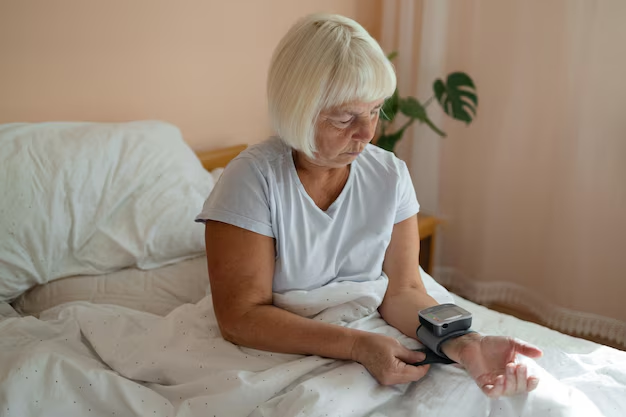Your Guide to Does Medicare Pay For Sleep Study
What You Get:
Free Guide
Free, helpful information about Medicare Insurance and related Does Medicare Pay For Sleep Study topics.
Helpful Information
Get clear and easy-to-understand details about Does Medicare Pay For Sleep Study topics and resources.
Personalized Offers
Answer a few optional questions to receive offers or information related to Medicare Insurance. The survey is optional and not required to access your free guide.
Does Medicare Cover Sleep Studies? Here’s What You Need to Know
Many people suffer from sleep disorders, making a good night's sleep seem more like a distant dream than a reality. Sleep studies emerge as a key diagnostic tool to unravel the complexities of issues like sleep apnea, insomnia, and restless legs syndrome. But if you're relying on Medicare, you might be wondering: does Medicare cover sleep studies? Let's dive into the details to uncover how your healthcare benefits could support your journey toward better sleep.
Medicare and Sleep Study Coverage
Medicare Part B is primarily responsible for outpatient services, including sleep studies, but certain criteria must be met for coverage. When your physician deems a sleep study medically necessary, and it is performed in a Medicare-approved sleep center or laboratory, you can be eligible for coverage. Medicare usually covers sleep studies such as:
- Polysomnography: The most common overnight study used to diagnose sleep apnea.
- Home Sleep Tests: Increasingly popular for their convenience, these tests are done at home to monitor sleep patterns.
Key Eligibility Factors
To qualify for Medicare coverage, several steps are mandatory:
- Your doctor’s recommendation must affirm the medical necessity of the sleep study.
- The sleep center or laboratory must be Medicare-approved.
- The study should be intended to diagnose or rule out specific sleep disorders, such as obstructive sleep apnea.
Costs to Expect: While Medicare Part B covers 80% of the cost, you're responsible for the remaining 20%, as well as the Part B deductible if it hasn't been met yet.
Beyond Sleep Studies: Exploring Financial Resources
Understanding the ins and outs of Medicare can ensure that you're not left bearing a financial burden. However, if you’re facing high healthcare costs, here are other financial assistance programs and options rooted in maximizing your resources:
Government Aid Programs
- Medicaid: Offers coverage to low-income individuals, potentially covering more comprehensive healthcare services than Medicare.
- Extra Help Program: Assists with prescription drug costs for those with limited income and resources.
Additional Financial Assistance
- State Pharmaceutical Assistance Programs (SPAPs): Provide help with drug costs.
- PACE (Program of All-Inclusive Care for the Elderly): Combines medical and social services for frail seniors who qualify.
Debt Relief and Credit Solutions
- Medical Payment Plans: Many sleep centers offer affordable payment plans or sliding-scale fees.
- Credit Counseling Services: Guide you in managing debt effectively and exploring repayment options.
Navigating this Network
With a firm understanding of Medicare coverage for sleep studies and additional supportive resources, you can navigate a path to improved sleep health while managing financial concerns. It's all about being informed, proactive, and seeking assistance when needed.
📝 Financial Aid Programs to Consider:
- 🏥 Medicaid: Comprehensive coverage for low-income individuals
- 💊 Extra Help Program: Helps cover drug costs
- 🚁 SPAPs: State assistance with medications
- 🏠 PACE: Integrated care for seniors
- 💳 Credit Counseling: Tools for managing healthcare debt
Utilizing these resources can ensure you not only access necessary sleep studies but also effectively handle the financial implications, encouraging a healthier, financially secure future.
What You Get:
Free Medicare Insurance Guide
Free, helpful information about Does Medicare Pay For Sleep Study and related resources.

Helpful Information
Get clear, easy-to-understand details about Does Medicare Pay For Sleep Study topics.

Optional Personalized Offers
Answer a few optional questions to see offers or information related to Medicare Insurance. Participation is not required to get your free guide.


Discover More
- Am I Elgible For Medicare
- Am I Enrolled In Medicare
- Am I Qualified For Medicare
- Are Adult Diapers Covered By Medicare
- Are Chemotherapy Drugs Covered By Medicare Part d
- Are Colonoscopies Covered By Medicare
- Are Covid Tests Covered By Medicare
- Are Cpap Machines Covered By Medicare
- Are Cpap Supplies Covered By Medicare
- Are Dental Implants Covered By Medicare
